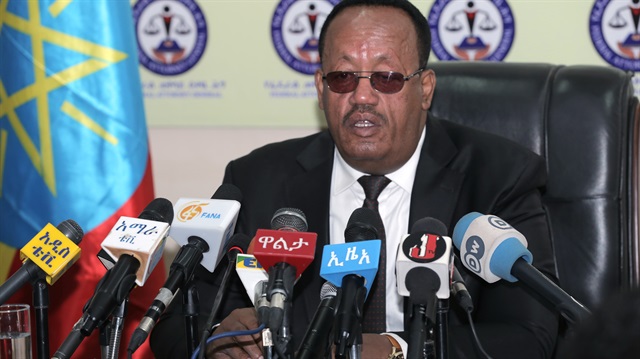
Ethiopia has said Monday that charges brought up against 528 inmates had been dropped as part of the first phase of a recent government decision to release jailed politicians and other convicts.
“The first-phase implementation of release of prisoners’ has begun and at the federal level the charges of 115 prisoners have been discontinued,” said Attorney General Getachew Ambaye on Monday. “They will be released on Wednesday.”
The attorney general said the South Ethiopia Nations, Nationalities and Peoples State – a region of more than 58 ethnic groups – had dropped charges targeting 413 inmates.
He added other regions would follow suit and that in the next couple of months political figures in jail who have been “convicted” of crimes would also be given amnesty.
Opposition parties have long denounced the indiscriminate jailing of polticial figures in Ethiopia.
Merera Gudina, leader of the Oromo Federalist Party arrested in 2016, is expected to be among those released.
The Oromia and Amhara regional states -- the most populous in the country, accounting for more than 60 percent of Ethiopia's population -- are currently in the process of identifying prisoners for release according to the recent decision of the executive committee of the ruling Ethiopian Peoples’ Revolutionary Democratic Front (EPRDF).
According to Ambaye, people who have killed during protests or those who directly participated in the destruction of property would not be eligible to benefit from this latest government edict.
Since 2016 there have been widespread anti-government demonstrations in Ethiopia particularly in the two largest and most populous regions of Oromia and Amhara.
Two weeks ago, in a rare admission, the ruling party said it had problems of governance and internal strife which caused socio-economic problems in the country.
The attorney general during the press briefing did not mention names of prominent political figures in jail that may or may not be released.
















